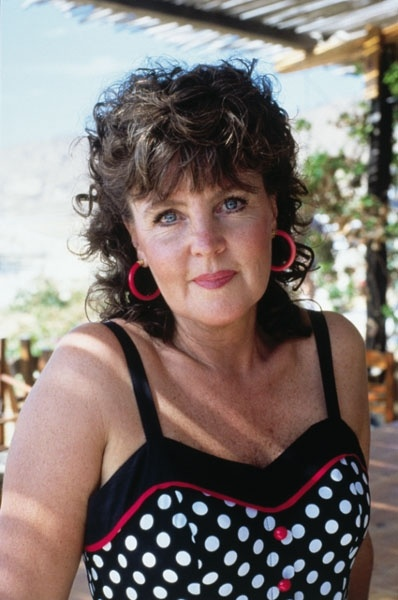
In 2021, tragedy struck as Shirley Nunn, 67, and her son Steven, 50, were discovered dead in their Middlesbrough home, leaving a community in shock.
A recent investigation has uncovered troubling details surrounding the incident, raising questions about whether it could have been prevented. Despite her son Steven’s struggles with cerebral palsy and epilepsy, Shirley had been his devoted primary caregiver for many years.

Due to his condition, Steven faced significant challenges with learning, movement, and emotional regulation, making him entirely dependent on his mother for daily care and support.
After the death of her husband, who had been diagnosed with cancer, Shirley took on the full responsibility of caring for Steven. Since 2005, adult social care had provided some assistance in this demanding role.
In October 2021, Shirley received the devastating news that she had been diagnosed with stage 3 lung cancer. The situation grew even more dire when the cancer spread to her brain, spine, and pelvis. Despite the overwhelming physical and emotional toll, Shirley continued to prioritize her son’s well-being above her own, demonstrating remarkable strength and dedication.

As Shirley’s health quickly declined, arrangements were made to provide her with palliative care at home, in line with her wish to spend her final days in the comfort of her own house.
However, a subsequent Domestic Homicide Review revealed that Shirley was grappling with deep depression and troubling thoughts about her future, particularly concerning what would happen to her son after her passing.
The review highlighted that, despite her grim prognosis, Shirley’s main concern was not her own suffering, but rather how Steven would cope with life without her. Reports suggest that she often broke down in tears, unable to reconcile the heartbreaking reality of leaving him behind with an uncertain future.
In the days leading up to her death, Shirley was hospitalized due to complications from her illness.

Shirley’s palliative care plan was shared with the hospital staff, yet it seems that the necessary support for her mental and emotional well-being was overlooked. Despite the severity of her condition, which should have prompted immediate psychological intervention, professionals failed to fully recognize the depth of her distress.
Tragically, just two days after Shirley was discharged from the hospital, the police responded to a call from her sister and discovered the lifeless bodies of both Shirley and Steven in their home. This devastating finding came exactly two years after Shirley had lost her husband to cancer, further underscoring the depth of her grief and the profound sense of isolation she had been enduring.
The investigation concluded that Shirley had been deprived of critical opportunities for support. It revealed that she had always placed Steven’s needs before her own, and it is believed she felt there were no other options for ensuring his care in the future.
Without adequate psychological assistance, Shirley may have felt trapped, leading her to see only one devastating choice.
This heartbreaking event has sparked significant questions about the support systems available to caregivers who are under immense pressure, highlighting the urgent need for more comprehensive mental health and caregiving support.
This tragic event forces society to confront difficult but necessary questions: Are we doing enough to provide mental health support for those carrying such heavy responsibilities?
Should more proactive intervention be implemented to prevent tragedies like this from occurring in the future? These questions urge a reevaluation of the systems in place to support caregivers, and whether more comprehensive measures are needed to ensure they are not left to carry the burden alone.

Shirley Nunn’s unwavering dedication to her son ultimately led to a heartbreaking outcome that no one could have foreseen.
Was it a failure of the system that left her feeling there was no way forward, despite the undeniable love she had for Steven?
It is crucial that, as communities, professionals, and lawmakers, we take a moment to reflect on what further steps can be taken to ensure that no one in Shirley’s situation is left feeling so isolated and overwhelmed that they believe there is no other choice. We must work together to create a support system that offers hope and help to those who need it most.